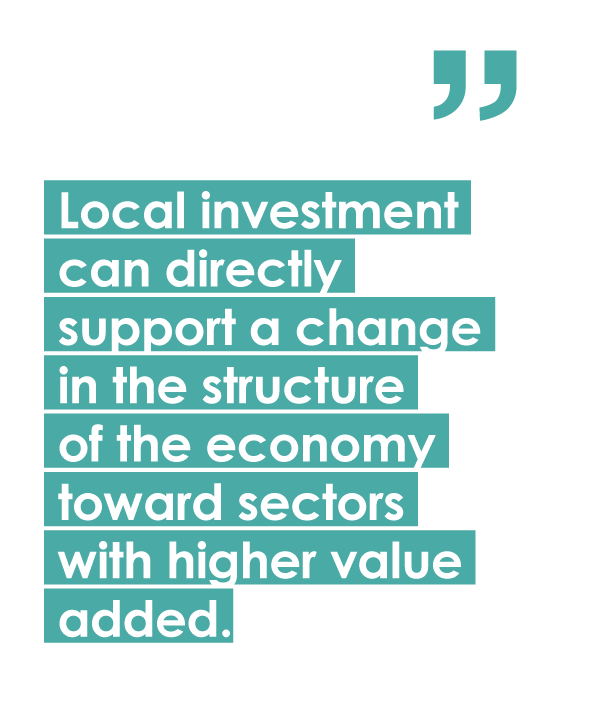But with well-managed investments with a focus on high-skilled founders and the right sectors and products, it is possible to turn even such a crisis into an advantage and consistently generate attractive capital returns for investors. Locally.
The situation surrounding the coronavirus has tested not only the society itself, but also the functionality of business models and inner workings of companies and organizations no matter the size. Paradoxically, it is China – from where the coronavirus has spread around the world – where the expression that bears the idea of both the crisis and the turning point comes from. The term weiji accurately describes what our generation is going through. It would be premature to talk about specific ramifications, because further development may play out according to different scenarios.
History has repeatedly shown that a crisis can be the beginning of progress and form new leaders. Diversification of investments in companies that have adapted quickly can be a way to invest at this time and also a chance how to restart economic development. Of course, the investment needs to be carefully considered, but the allocation of local capital to domestic companies can mean more than just an interesting return. What’s more, investors today have a unique opportunity to participate directly in creating value – to be part of a story that will shape future leaders and bring innovation to almost every area of our lives.
There are several clues as to how this “tectonic shift” in the world economy and local behavior will influence the future of business and overall trends. Some of these trends can also be an inspiration for investors and future investment opportunities at the same time:
Localization of production and consumption: We anticipate a return to domestic production not only due to solidarity with local companies, but mainly because of the limits on products available for import and the paralysis of the supply chain.
Shift of sales channels to the online world: The winners of the global pandemic are digital business models and e-commerce platforms that operate in the online environment. Their flexibility and cost base and the fact that they do not require personal contact are proving to be major advantages over brick-and-mortar operations. Digitalization and e-commerce will gain even greater momentum.
Automation and robotization of processes: The interruption and shortage of human labor during crisis scenarios is another trend that will be reinforced by the current pandemic. Continuous production and flexibility in managing volume (in the event of rising or excess demand) will become a fundamental competitive advantage.
Capital appreciation: Flexible financing with decreased dependence on banks and lower sensitivity to unexpected shocks in direct relationship to capital providers, will become a necessary part of shoring up companies’ resilience against external shocks. This is also inevitable in light of the economy’s reduced dependence on the automotive and manufacturing sectors.
Zero-interest rates: Due to the rapid increase of public debt, “lower for longer” will become “lower forever”. Capital investments that bring growth and dividends will be one of the few havens for return-seeking capital, particularly in sectors that profit from structural changes in the world order. Cooling in the area of residential real estate and rental income shortfalls (e.g. Airbnb, labor mobility) will further strengthen this trend.
Local investment in small and medium-sized enterprises has a fundamental impact on domestic companies, while external shocks can also have a positive effect on companies’ business models. We are currently observing a similar situation with some companies in the Crowdberry portfolio (e.g. GymBeam or Isadore Apparel). In more complicated situations – where a helping hand is needed – it is possible to overcome a difficult period with targeted control of investments and support for investors, allowing companies to gain a better competitive position in the market with their products and services.
Of no less importance, the allocation of domestic capital to local companies also helps our economy and secures job opportunities. Local investment can then directly support a change in the structure of the economy toward sectors with higher value added.
This article was written in March 2020 and it reflects the author’s views regarding the future development at the time of writing.




Follow us